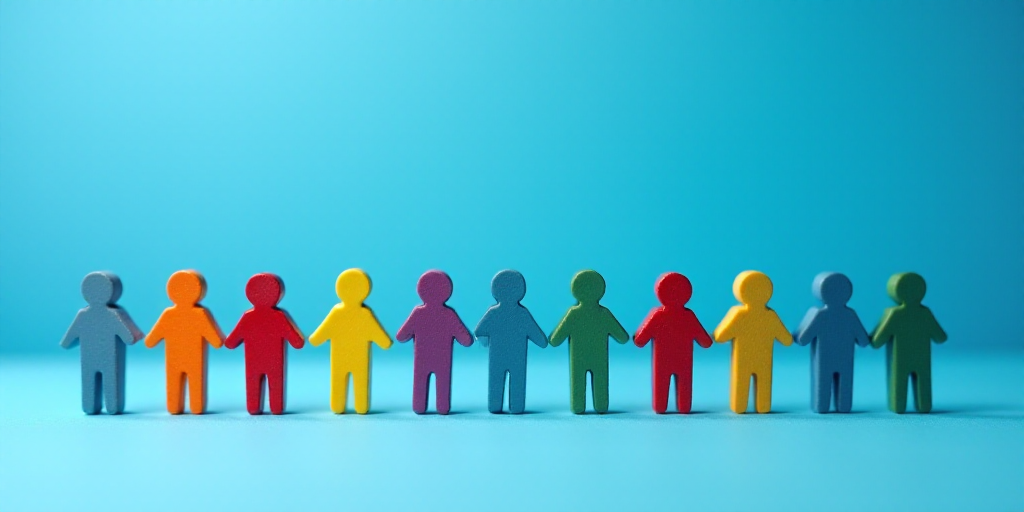Formal Policies vs. Real Inclusion
According to the IPBI’s 2024 Wellbeing Factor report, at least seven out of ten companies in Mexico have formal non-discrimination policies. However, there is a significant gap between these intentions and the actual experiences of LGBT+ community members and other vulnerable groups within these organizations.
Rosalinda Ballesteros, the IPBI director, emphasized that “inclusion is not a cosmetic strategy but an ethical, human, and social responsibility.” She added that employees evaluate companies based on their lived experiences rather than their statements. “If they cannot show who they are or feel safe, true inclusion is not achieved, and ensuring organizational well-being becomes essential for authentic and sustainable inclusion.”
Limited Capacity to Drive Change in Companies
The Mexican National Institute of Statistics and Geography (Inegi) reports that 5.1% of the population aged 15 and over identifies as LGBT+, totaling approximately 5 million people. Of these, 64.3% are part of the Economically Active Population (PEA). However, only 43% of organizations have formal committees or groups representing cohorts like the LGBT+ community or people with disabilities, limiting their ability to influence decisions and drive structural changes within their companies.
Leadership’s Role in True Diversity and Inclusion
True diversity and inclusion hinge on the role of leaders, as Ballesteros explained. “Leadership is not just measured by financial results but also by the ability to make people feel valued, respected, and represented.”
Ilan Meyer from the University of California, Los Angeles (UCLA) noted that individuals in marginalized groups are 2.5 times more likely to develop mental health issues like anxiety or depression due to minority stress. This stress stems from discrimination, invisibility, fear of rejection, and the constant need to conceal one’s identity.
While financial outcomes are crucial, true inclusion goes beyond performance. The 2024 Wellbeing Factor report states that inclusion directly impacts a company’s ability to attract talent. McKinsey & Company’s Diversity Wins study found that companies with robust diversity, equity, and inclusion (DEI) programs have a 25% higher chance of achieving better financial performance compared to those without such programs. Diverse teams tend to make more informed decisions, process data better, and generate more innovative solutions.
Towards More Equitable Organizational Cultures
The IPBI report proposes a concrete roadmap to advance towards more equitable and just organizational cultures that transcend superficial policy compliance:
- Deep and continuous training on diversity, equity, and inclusion, including unconscious bias elimination, microaggressions, and exclusionary practices. These should be integral to the organization’s DNA rather than annual talks.
- Actively listen to underrepresented voices through confidential channels, safe spaces, and affinity groups with real influence. Policies cannot be written without those who experience them.
- Establish formal representation structures with decision-making power, such as diversity committees or inclusive counseling services, to oversee policy implementation and provide support in discrimination cases.
- Measure well-being impact disaggregated, considering gender identity, sexual orientation, disability status, and other factors to identify inequities and design tailored responses.
- Ensure representation in leadership roles to break glass ceilings, cement floors, or concrete barriers that still hinder the professional growth of many due to reasons unrelated to their capabilities.
In Mexico, inclusion policies remain an illusion for most companies. They have not translated into genuine equity cultures, negatively affecting the well-being, trust, and professional growth of millions of workers.
Key Questions and Answers
- What does the IPBI report reveal about inclusion in Mexican workplaces? The report highlights a significant gap between formal non-discrimination policies and the lived experiences of LGBT+ community members and other vulnerable groups.
- How does leadership play a role in true diversity and inclusion? Leaders must ensure that people feel valued, respected, and represented for true diversity and inclusion to be achieved.
- What are the consequences of minority stress for marginalized groups? Individuals in these groups are more likely to develop mental health issues like anxiety or depression due to discrimination, invisibility, fear of rejection, and the need to conceal their identities.
- How does inclusion impact a company’s financial performance? Companies with robust diversity, equity, and inclusion (DEI) programs have a higher chance of achieving better financial performance compared to those without such programs.
- What steps can organizations take towards more equitable cultures? Organizations should prioritize deep and continuous training, actively listen to underrepresented voices, establish formal representation structures with decision-making power, measure well-being impact disaggregated, and ensure representation in leadership roles.






